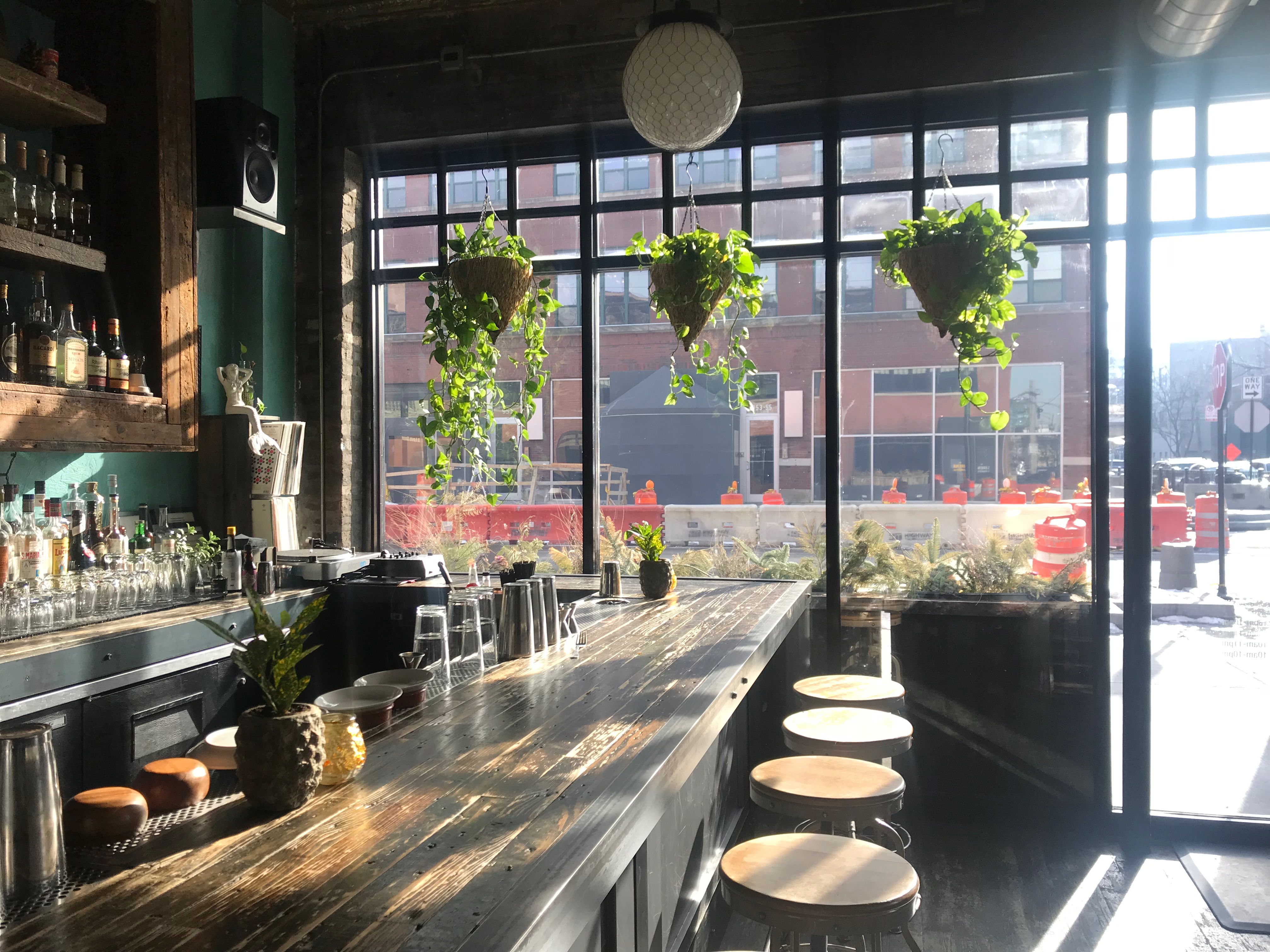When I get ahold of John Manion, he is in the process of lighting the very first fire in his new wood-fired kitchen at Time Out Market, and that feels like a metaphor for something.
Manion recently announced the December 31 closure of his beloved La Sirena Clandestina, a victim of West Loop real estate prices. Meanwhile, he’s also one of the highest-profile members of the new massive food hall a few blocks away. His straddling of opposite ends of the West Loop restaurant spectrum (small independent vs. massive corporate behemoth) make it a perfect time to talk to him about the restaurant that is closing, the restaurant that is opening, and what he’s seen in the West Loop as it’s gone from sleepy packing district to the hottest hot spot.
Back in 2012, when Manion opened La Sirena Clandestina, the West Loop was a very different place. Plenty of industrial food companies were still there, major corporations hadn’t started renovating old buildings, and while plenty of restaurants had already lined up on Randolph Street, the density of spots vying for public attention wasn’t what it is now.
“It was a different time,” he remembers. “The way you gathered steam was more organic, more word of mouth. People looked forward to things for longer. It’s accelerated at an unbelievable rate.”
Manion didn’t even plan to open La Sirena. At the time, he was working on what would, much later, become El Che Bar. But after a pop-up of La Sirena’s food caught a lot of attention, he ended up taking over the spot that had hosted the pop-up.
“It felt right, so we said, ‘Let’s do it,’” he says.
La Sirena was an ode to Brazilian drinking spots, a small, dark spot with great drinks and an awesome energy. “That room was just magic,” Manion says. The space — how it fit the vibe he was trying to create — is one reason that he decided not to move the restaurant.
Why close something doing so well? Part of the reason was the insane spike in West Loop real estate prices. As things changed, it became obvious to Manion that he couldn’t make a restaurant the size of La Sirena sustainable, even if it kept busy. He says he saw the writing on the wall for La Sirena when the city built the Morgan El station. That, plus the constant development in the area, meant the space around the restaurant was basically under permanent construction, and a small independent spot just wasn’t going to be viable.
“When Google was announced, the land rush was on,” he says.
Unfortunately, Google didn’t really prove to be a boon for the restaurant. “Google feeds their people and doesn’t want them to leave — it’s a goddamn utopia in there,” he jokes. “From my standpoint, there are a lot of people who will benefit from all this development and money, but I am not one of those.”
This is in stark contrast to El Che, just a few blocks away but subject to different pressures. The development of McDonald’s corporate HQ has been a huge boost to El Che, which keeps getting more popular and has consistently great reviews.
Manion’s involvement in Time Out Market is a bit different for him because it’s in partnership with Cornerstone restaurant group. He candidly admits that, as he gets older, his appetite for risk drops, and partnering with a group means he can focus on making interesting food. The food hall was a perfect fit — Time Out had already built out a fully wood-fired kitchen (presumably for another tenant; they wouldn’t tell him who) which matched exactly what Manion was doing at the all-wood-fire El Che. Expect dishes like a kale and gruyère empanada, charred broccolini, a large bone-in beef short rib, and a take on a dish he cooks for his college-age nephews, a version of poutine topped with provoleta, sauce he uses for filet mignon, and chimichurri.
“It’s in the grand tradition of Chicago,” he says. “We love big, dumb stuff.”
Unlike many closings, the end of La Sirena Clandestina doesn’t seem to grieve Manion. There’s plenty of time for fans of the restaurant to get a last taste, and he’s not leaving in a spirit of crisis or emergency.
“Knowing for as long as we’ve known that there’s an end to it, I’m not sad. There was always a life to it; we knew it was not going to be forever,” says Manion. “It’s a bummer because it’s great, but it’s also time to be done.”




